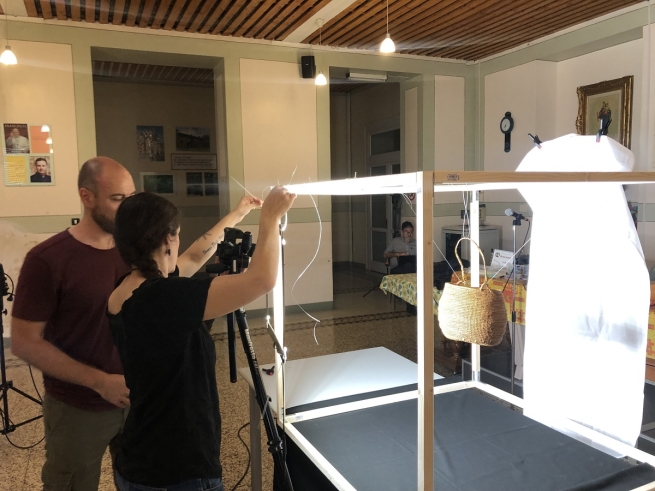The KNOT project is coordinated by the La Sapienza University of Rome in collaboration with the University of Bologna and the Institute of Cultural Heritage Sciences of the National Research Council (ISPC CNR).
The interest in these finds is part of a project led by anthropologist Renato Athias (Professor at the University of Pernabuco – Brazil) that provides for the mapping and virtual return of indigenous collections from the Amazon Region of the Upper Rio Negro (Brazil).
Participants in this work:
- Letizia Pecetto (MEM Curator - Colle Don Bosco, host and member of the project);
- Prof. Renato Athias (Anthropologist);
- Dr Anna Bottesi (Researcher at the University of Bologna);
- Dr Chiara Scardozzi (Researcher at the University of Bologna);
- Dr. Daniele Ferdani (ISPC – CNR);
- Dr Maria Felicia Rega (ISPC – CNR);
- Dr Diego Ronchi (ISPC – CNR).
In addition, between June and July, the MEM received a visit from the Cultural Heritage Authority to check the state of conservation of its collections.
In the report drawn up by the two officials under inspection, it emerged that "the very rich non-European ethnographic collection is in a good state of conservation and in particular no problematic situations have been found on perishable material artefacts (feathers, vegetable weaves, wood...)".
All these materials are stored in adequate spaces, both on display and in the warehouses, where a special container has been prepared for each one that determines its excellent conservation.
The Ministry of Culture has expressed a more than positive opinion regarding the cultural value of the collection, urging an increase in knowledge in the conservation field for the curator who deals with it.
Preserving the past in perspective of the future is one of the objectives that a museum must pursue to keep cultures and their traditions alive, and the MEM takes care of this mission with constancy, conviction and awareness.



